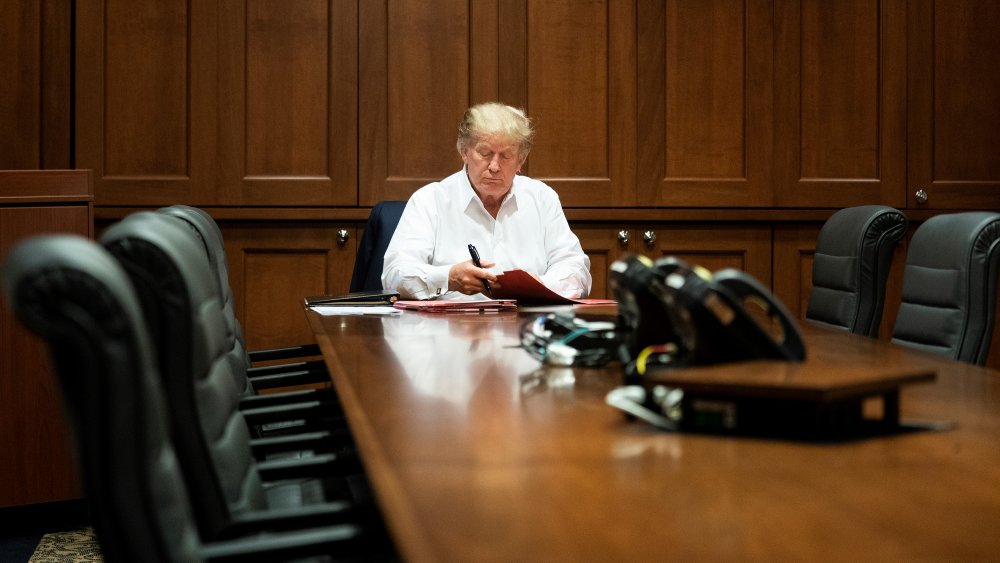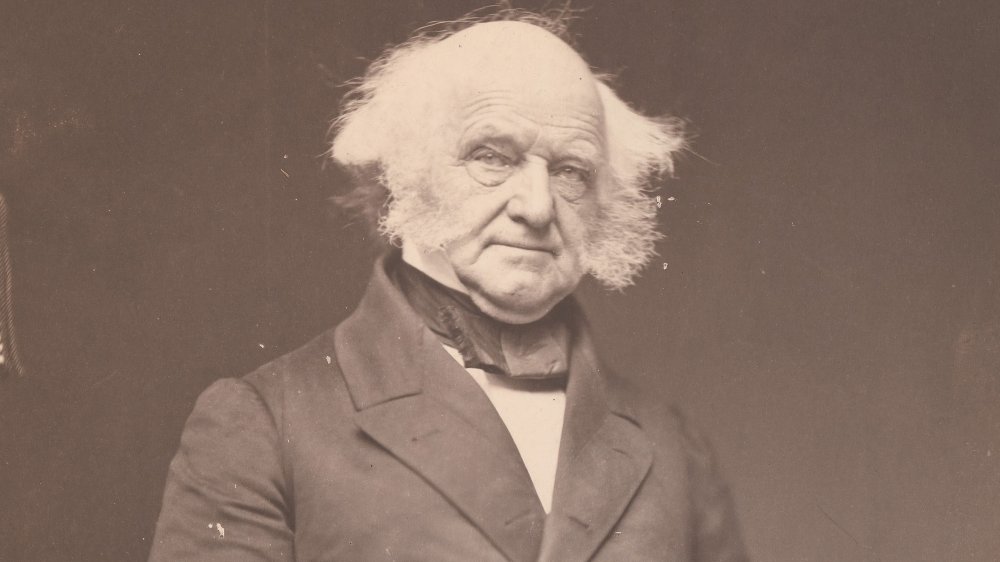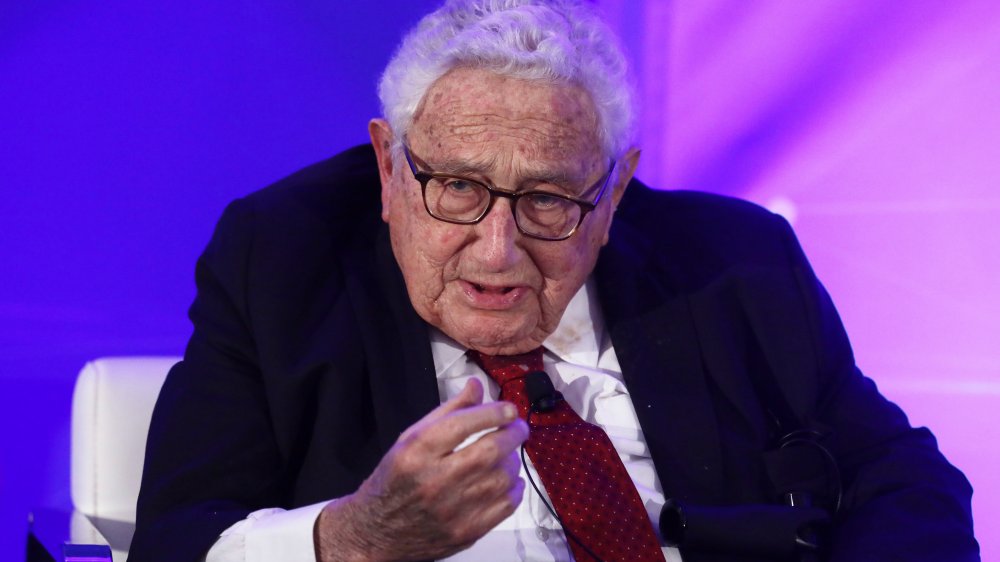What Are October Surprises And What Do They Accomplish?
On October 2, 2020, The New York Times reported that President Donald Trump had contracted Covid-19. The diagnosis came after he consistently downplayed the seriousness deadly disease for months, refusing to wear or even endorse the use of face masks, while the virus has gone on to kill over 207,000 people in the country. The news of the president's illness shocked the American people and the world, as it came just a month before the country decides if it wants four more years of the man who "continues to put his political aims ahead of the public health crisis," as epidemiologist Abdul El-Sayed wrote in a CNN op-ed. The former health director for the city of Detroit added that "the U.S. death toll from coronavirus could exceed 315,000 by December 2020" as a result of the administration's current pandemic response strategy.
The Guardian called Trump's Covid-19 diagnosis "the ultimate 'October surprise'" in what "has already been one of the strangest and most unpredictable election years in history." Andrew Gawthorpe, who penned the article, wrote that we shouldn't really be surprised: "given the president's insistence on ignoring even the most basic of precautions against the virus, this development feels as if it was almost inevitable." But first: What is an October surprise, and how does it relate to election day?
The last-minute surprises that can completely alter the course of a U.S. election
Politico describes an October surprise as either "happenstance or deliberately orchestrated ... bombshells that scramble political calculus just as the stakes are at their highest." And it appears as though October 2020, like the rest of this bewildering year, won't be lacking in such events. Politico mentioned the late September story that was broken in another report by The New York Times of Donald Trump's long sought-after tax returns, which revealed that the man who claims to want to make America great again doesn't want to put his money where his mouth is in order to do so. The investigation found that the president paid just $750 in income taxes in 2016, and the same scant amount the following year as well.
Politico was able to document 15 October surprises dating as far back as 1840. That was the year President Martin Van Buren, up for re-election, delayed announcing federal charges against the opposition party for the "most stupendous and atrocious [voting] fraud," finally breaking the news in mid-October. The gambit didn't pay off for Van Buren, a Democrat. One of the members of the opposition Whig party who had organized the fraud simply admitted to the charges, and the electorate assumed the Democrats were up to the same funny business. Van Buren narrowly lost to William Henry Harrison, who made it a whopping 32 days in office before he died in the White House.
There have been other notorious October surprises in U.S. history
One of the most egregious examples of a manufactured October surprise came in 1972, while the country was fighting the Vietnam War. On October 26, President Nixon's National Security Advisor, Henry Kissinger, prematurely announced that "peace is at hand." As we now know all too well, however, peace was still a long way off. As noted in the Politico article, peace talks between North and South Vietnam had been falling apart just a few days before the announcement, and the former "publicly accused the United States of duplicity." Although the announcement had the desired political effect at home — Nixon won the election by a huge margin — the peace talks fell to pieces in December and that exceedingly unpopular and unnecessary war raged on for another two-and-a-half years, earning Kissinger a spot on the list of undeserving Nobel Peace Prize winners.
As the country waits and watches for what will happen with President Trump's Covid-19 diagnosis, who knows what will come next? (There's still a lot of October to go.) With Joe Biden and Kamala Harris leading national polls, according to an October 6, 2020 report by The New York Times, it could be political time's-up for Trump. But he shouldn't be counted out. As the Pew Research Center reported the day after his 2016 election win, he was elected president despite being similarly trailing in national polls that October.


